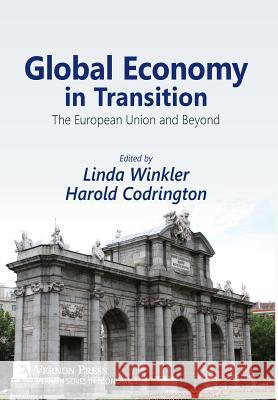Global Economy in Transition: the European Union and Beyond » książka
Global Economy in Transition: the European Union and Beyond
ISBN-13: 9781622732760 / Angielski / Twarda / 2017 / 260 str.
Global Economy in Transition: the European Union and Beyond
ISBN-13: 9781622732760 / Angielski / Twarda / 2017 / 260 str.
(netto: 374,05 VAT: 5%)
Najniższa cena z 30 dni: 387,40
ok. 16-18 dni roboczych.
Darmowa dostawa!
This volume covers various issues in global development and global economic transformation including factors affecting economies and development in the European Union (EU), the Ukraine, select countries in Africa, the Caribbean, the South Pacific as well as India and the United States. The global economy is in transition, from the 1990s' status quo to the "new normal" with heavy reliance on the internet, rapid communications, sophisticated payment systems, diminishing importance of size and distance and changing notions of the market. This volume discusses how this process is affecting economies across the globe and why an appreciation of it will help efforts by governmental bodies and the private sector to reassess societal relationships - both economic and political. This volume shows that challenges to policy-making and the achievement of social consensus on development issues are often quite similar in all countries, irrespective of size, geographical location, endowment and developmental status. The chapters speak to concerns that touch on a cross-section of issues which are driving transition and transformation at multiple levels. As a group, they compare economic factors across transnational economic or political associations (OECD, European Union, G20) or make comparisons across or within emerging markets or small states (BRICS, various African countries, the Caribbean, South Pacific). They include the presentation of a new model for transnational agreements, discussions of policies related to labor compensation and corporate governance, comparisons of nations across the world using indices of economic development and governance, an analysis of gender inequality in employment in the European Union, comparisons of tax burdens across the European Union and the USA, discussions of employee representation in corporate governance, and a look at grass-roots development and markets in developing economies. As a whole, in its breadth and cross-national perspective, the volume represents an important scholarly contribution to international economics.











